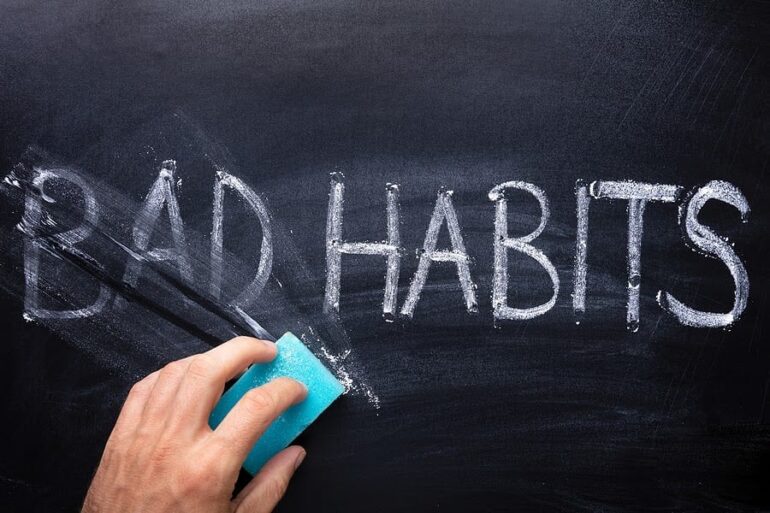Everyone has habits; some are beneficial like, making your bed every morning or laying out your clothes for work the night before.
However, some habits aren’t so beneficial.
Breaking unwanted habits can be extremely difficult, but there are some ways to make it easier. The first step to getting rid of bad habits is understanding how habits form.
The Three R’s idea is one of the most popular theories in how habits are developed. James Clear, an author and ideas advocate, described the three Rs as:
– Reminder.
This trigger or cue could be a conscious behavior, such as flushing the toilet, or a feeling, such as nervousness.
-Routine. This is the behavior associated with the trigger. Flushing the toilet cues you to wash your hands while feeling nervous triggers biting your nails. Doing something over and over can make the behavior routine.
– Reward. The reward associated with a behavior also helps make a habit stick. If you do something that causes enjoyment or relieves distress, the pleasurable release of dopamine in your brain can make you want to do it again.
Keeping in mind the Three R’s, here are some tips to help you break unwanted habits.
Identify Your Triggers
Triggers are the first step in developing habits. It’s important to acknowledge the triggers behind your habits to move past them.
One way to do this is to spend a few days tracking your habit to see if it follows any patterns; some things to look out for are
- Where does the habitual behavior happen?
- What time of day?
- How do you feel when it happens?
- Does it follow the occurrence of something else?
Knowing and acknowledging your triggers can help you avoid them.
Try To Reduce Your Stress Levels
Most habits like smoking involve the brain’s dopamine system.
Dopamine is a “feel-good” chemical that transmits signals between neurons in the brain.
The first time you engage in a new, “rewarding” behavior, you get a euphoric feeling from doing it due to a dopamine release.
This leads to changes in both the connections between neurons and the brain systems responsible for actions and accounts for why we start to form bad habits, to begin with.
If you attempt to reduce your stress levels, you’ll feel less inclined to tap into bad habits.
Replace A Bad Habit With A Good One
Most times, instead of trying to stop doing something, it’s easier to start doing something else. You will most likely have an easier time breaking a habit when you replace it with a good one.
As you repeat this new behavior, the impulse to follow a new routine will develop. Eventually, after you see rewards from your new habit, the urge to keep doing this behavior might outweigh the desire to pursue the old habit.
It’s important to note that forming a new habit takes time and commitment, so remember not to get discouraged!
Practice Mindfulness
Mindfulness can help develop awareness, feelings, and actions to help end negative habits and build positive ones. This involves observing impulses that relate to your habit without judging or reacting to them.
Once behavior becomes automatic, your brain might make a decision without you even recognizing it, and it can create a pattern next time you perform that action.
To break mindlessness, take a few deep breaths and try to remain present. When you do this repeatedly, your brain will begin to realize you’re moving away from old patterns and start to look for new patterns to adopt.
As you become more aware of these routine behaviors and the triggers that lead to them, you may find it easier to avoid these triggers or not act on them.
Practicing mindfulness is a great way to help you recognize the ways your habits affect your life. As you start to recognize these effects, you may feel more driven to change the habit.
Don’t forget that breaking old patterns and making new ones takes time!
Make sure to be gentle with yourself, recognize your growth, and always remember to breathe.


